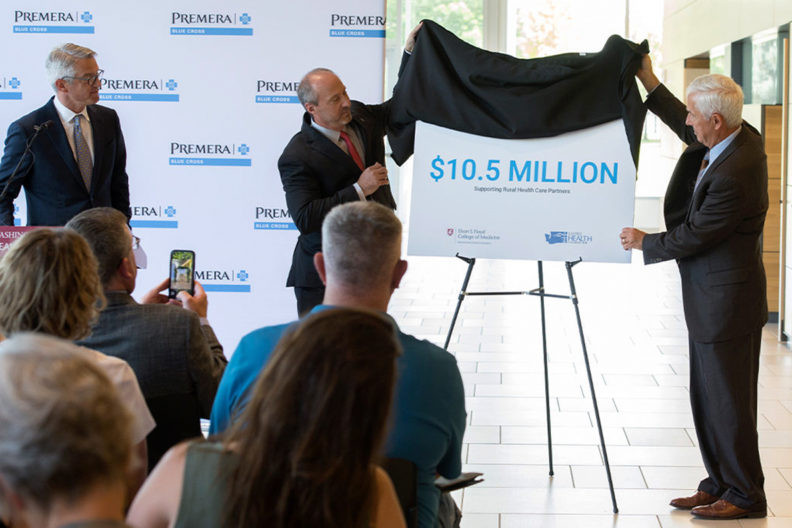Premera Blue Cross announces investment to expand rural health care access in eastern Washington
Friday, August 2, 2019

SPOKANE, Wash. – Premera Blue Cross, a leading health plan in the Pacific Northwest, today announced a major investment in eastern Washington to expand health care access and improve quality of care in rural communities.
Premera will award $10.5 million in grants over the next four years to Washington State University Elson S. Floyd College of Medicine and Empire Health Foundation.
“Premera is proud to be supporting Washington State University and Empire Health Foundation in their efforts to deliver health care to remote and medically underserved communities in our state,” said Jeff Roe, President and CEO of Premera Blue Cross. “With the growing disparity between urban and rural health care access, it is critical to invest in effective, long‑term solutions like rural medical residency programs and more integrated services that will help close this gap. We’re excited to be part of sustainable solutions that will help narrow the gap between urban and rural health care in our state.”
According to a 2017 study from the National Rural Health Association, people living in rural areas suffer worse health outcomes than their urban counterparts. They are sicker, poorer and older and are more likely to experience higher rates of premature death, disability and chronic disease. In Washington state, more than a million people, or 14 percent of the state’s population, live in rural communities.
Premera is awarding $5.5 million in grants to the Elson S. Floyd College of Medicine to establish new sites for graduate medical residency programs in eastern Washington.
Since its founding in 2015, the school has championed expanding medical education and health care access to underserved and rural communities across the state. With 100 percent of its students from Washington, and an emphasis on recruiting students from the same challenging health care environments they intend to serve, the college is working to ensure students gain valuable experience in rural health care environments beginning in their undergraduate years and continuing through residency.
“The demand for skilled medical professionals in our rural communities is not being met today. By creating residency programs in rural areas, we will greatly increase the likelihood that our graduates will remain in those communities to practice medicine,” said Kirk Schulz, president of Washington State University. “With investments in medical education and training, motivated clinical students are better prepared to meet the unique health challenges in underserved areas, and we are thrilled that this partnership will help advance this important initiative and improve health outcomes for the communities we serve.”
Premera will award $5 million in grants to Empire Health Foundation. Premera’s investment in rural health initiatives will make possible a wide variety of grants administered by Empire Health that will help break down health care siloes and address the challenges of availability and equity. They believe medical education and training combined with integrated services are essential building blocks for a sustainable and affordable health care system. But this wholistic approach is not always taken to address current challenges.
“Empire Health Foundation believes whether you live in a rural or urban community, healthcare is a fundamental right. Our rural residents face daunting healthcare challenges in their communities, including limited resources and barriers to access. We are committed to changing that situation by partnering with communities to identify innovative, local solutions. Premera’s investment in rural hospital infrastructure and workforce will play a meaningful role in achieving this goal for rural Washingtonians,” said Jeffrey Bell, board chair of Empire Health Foundation.
This partnership is part of a larger program to improve access to care in rural areas. The company is focusing its investments in the following areas: physician, nurse and health aide recruitment and training; clinical integration of behavioral health; provider to provider consultations to support isolated rural doctors; and, programs to increase the capacity of mental health crisis centers in rural areas.
Learn more about how Premera is investing in rural communities.